MARL Class XI started the second day of the first seminar in the same way as many classes have before them; with a cup of coffee and breakfast. Granted we were all in a Zoom meeting room instead of a hotel breakfast area but this casual opportunity allowed us to gather and learn a little more about each other and become energized for another full day of learning.
Olga Brouwer, Executive Director, started the day by welcoming the group back together and bringing in special guest, Thom Petersen, Minnesota Commissioner of Agriculture (MDA). Thom shared his excitement about the program and referenced the need for leadership during these challenging times. We look forward to connecting more with Commissioner Petersen and others from the MDA in upcoming seminars.
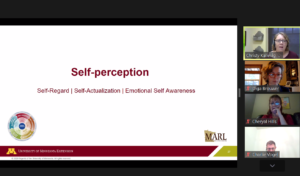 After spending the evening reviewing their personal EQ-i Assessment Reports participants had the opportunity to do a deeper exploration of emotional intelligence. Working to develop one’s emotional intelligence can help them to move up within their organization, have improved mental and physical well-being , and even lead to healthier animals and crops on their farms. Participants were introduced to the Peer Learning Circles and met within those groups to learn about each other and their opportunities and challenges with emotional intelligence. In their Peer Learning Circles they also connected with the Alumni Leadership Fellows. The Fellows are alumni who have been selected to serve as mentors to the Peer Learning Circles as they move through their MARL journey.
After spending the evening reviewing their personal EQ-i Assessment Reports participants had the opportunity to do a deeper exploration of emotional intelligence. Working to develop one’s emotional intelligence can help them to move up within their organization, have improved mental and physical well-being , and even lead to healthier animals and crops on their farms. Participants were introduced to the Peer Learning Circles and met within those groups to learn about each other and their opportunities and challenges with emotional intelligence. In their Peer Learning Circles they also connected with the Alumni Leadership Fellows. The Fellows are alumni who have been selected to serve as mentors to the Peer Learning Circles as they move through their MARL journey.
Program Leader Toby Spanier then worked with the group to enhance their understanding of the power of questions. Using good questions can help us to be better leaders and move us towards action. The group learned about the ORID method which can be used with a focused conversation; how to use questions that enable action and keep others on track: and probing questions that invite participation. In small groups the class explored each of these question types and discussed the benefits and challenges with each question type.
Returning to the Peer Learning Circles the groups then put their new knowledge about asking good questions to use. They worked as groups to develop questions that would be asked of our tour hosts and conversation guides. Each group prepared questions that spoke to the learning goals around emotional intelligence, growth mindset, and understanding the context for leadership.
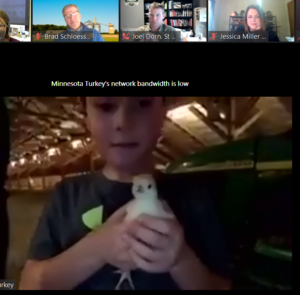
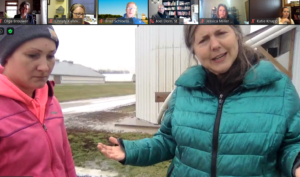
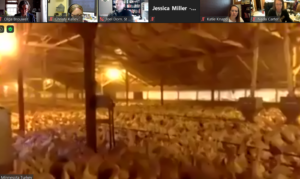
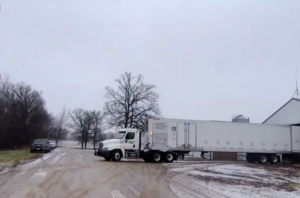
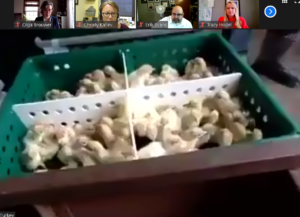 Sarah Anderson along with Lynnette and Samantha Gessell made MARL history by conducting our first virtual tour. Sarah, Executive Director for Minnesota Turkey Growers, helped us understand the turkey industry and the economic impact it has for our state as we lead the nation in turkey production. We were thankful to the Gessell Family for showing us around their farm near Swanville on a busy day when they welcomed new poults into their barns. The excitement and pride that this legacy farm family has for their work could be seen, heard, and felt through our virtual tour.
Sarah Anderson along with Lynnette and Samantha Gessell made MARL history by conducting our first virtual tour. Sarah, Executive Director for Minnesota Turkey Growers, helped us understand the turkey industry and the economic impact it has for our state as we lead the nation in turkey production. We were thankful to the Gessell Family for showing us around their farm near Swanville on a busy day when they welcomed new poults into their barns. The excitement and pride that this legacy farm family has for their work could be seen, heard, and felt through our virtual tour.
After leaving the Gessell farm we moved, virtually of course, to St. Cloud where we were joined by Tracy Hodel, Public Services Director, Lisa Vollbrecht, Public Utilities Director, and Emma Larson, Asst. Public Utilities Director to learn about St. Cloud’s Wastewater Treatment Facility. We learned that this innovative facility is now fully powered by renewable energy sources. The facility is the definition of innovation as they have found new ways to use solids to create new products and even help farmers meet their nutrient needs through direct application. The team also shared their own leadership stories as some of the first women in the wastewater sector. Who knew that learning about wastewater could be so interesting!
We got on the virtual bus again and moved over to Clearwater where we were joined by Matt Maier, owner and operator of Thousand Hills Beef. Thousand Hills Beef with family farms across the United States to raise grass fed beef using regenerative agriculture practices. Matt showed us a group of cattle grazing on land that has been built up through these practices due to the introduction of a diverse mix of grasses and the benefits that the animals themselves bring. We learned about the use of pasture grazed hogs and chickens within his operation as well.
Matt helped us to see the work ahead of us and the leadership needed to ensure that consumers understand the value of the product on the shelves and in making sure that we have sustainable pricing for the products being produced.
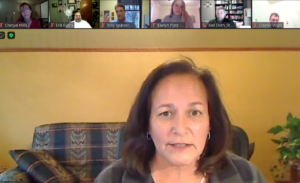 Dr. Bev Durgan, Dean of University Minnesota Extension briefly hopped on to welcome and encourage Class XI on their journey. Dean Durgan emphasized the importance of leadership development, and highlighted the unique partnership MARL is, between UMN Extension and SMSU.
Dr. Bev Durgan, Dean of University Minnesota Extension briefly hopped on to welcome and encourage Class XI on their journey. Dean Durgan emphasized the importance of leadership development, and highlighted the unique partnership MARL is, between UMN Extension and SMSU.
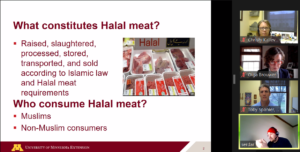 We returned to St. Cloud and virtually met Extension educator Serdar Mamedov who is working with ethnic communities in St. Cloud to expand access to halal meats. Serdar educated our group on the requirements that must be met to define meat as halal and that the process is more than how the meat is butchered; the process begins with how the animal is raised. Currently, halal meats are being imported from New Zealand. This means that the halal meat, typically goat and camel, are not fresh and the quality cannot be guaranteed. Serdar shared that he is working with community leaders to create a supply chain within central Minnesota that will hopefully include a processing facility. This project has been significantly impacted by the gathering restrictions of Covid but he is optimistic that it will continue to move forward. We hope that we will be able to reconnect with Serdar and the community leaders at another time during our program to hear that the project has reached some of its goals.
We returned to St. Cloud and virtually met Extension educator Serdar Mamedov who is working with ethnic communities in St. Cloud to expand access to halal meats. Serdar educated our group on the requirements that must be met to define meat as halal and that the process is more than how the meat is butchered; the process begins with how the animal is raised. Currently, halal meats are being imported from New Zealand. This means that the halal meat, typically goat and camel, are not fresh and the quality cannot be guaranteed. Serdar shared that he is working with community leaders to create a supply chain within central Minnesota that will hopefully include a processing facility. This project has been significantly impacted by the gathering restrictions of Covid but he is optimistic that it will continue to move forward. We hope that we will be able to reconnect with Serdar and the community leaders at another time during our program to hear that the project has reached some of its goals.
Throughout our seminar we had the opportunity to hear and read notes of welcome from members of the MARL community. Thank you to everyone who took time to send a note of welcome to Class XI or record a message, and for the visits from Mike Yost, MARL Board Chair, Commissioner Petersen, and Dean Bev Durgan, University of Minnesota Extension. The class was able to see that they are valued and already connected to our MARL community.
Submitted by Christy Kallevig, Program Leader/Extension Educator
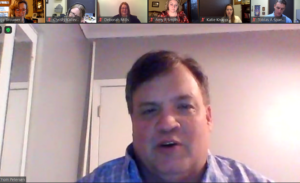
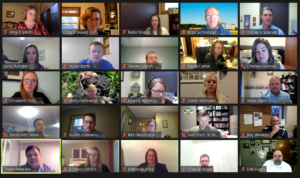
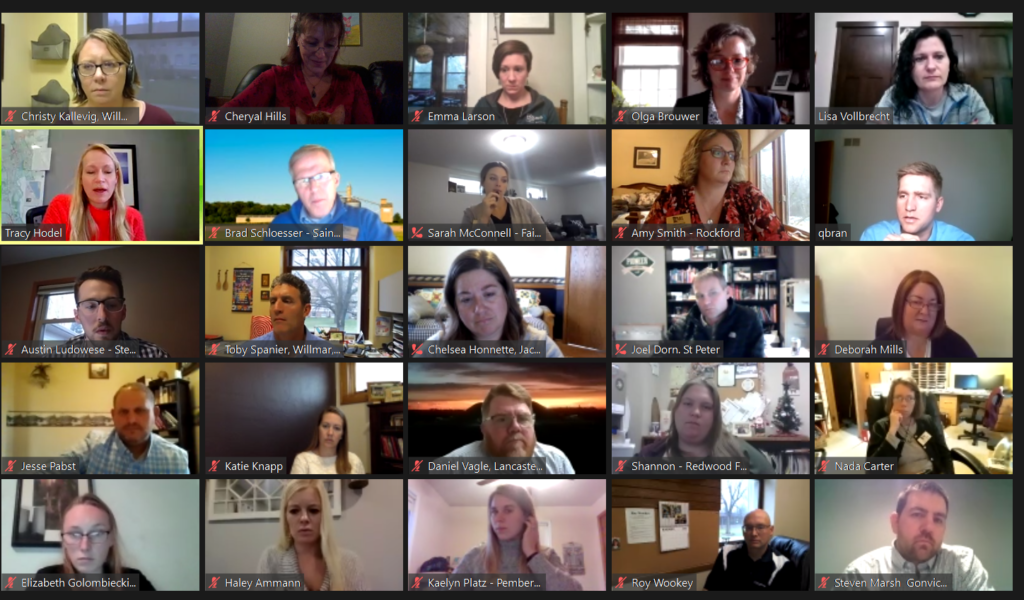

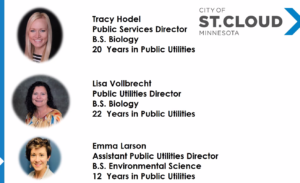
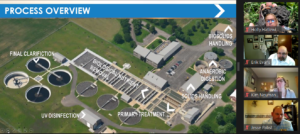
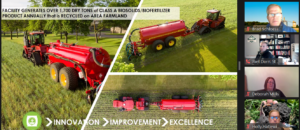
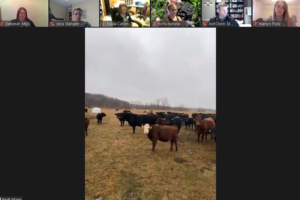

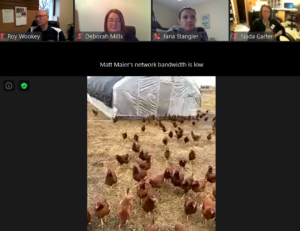
Comments